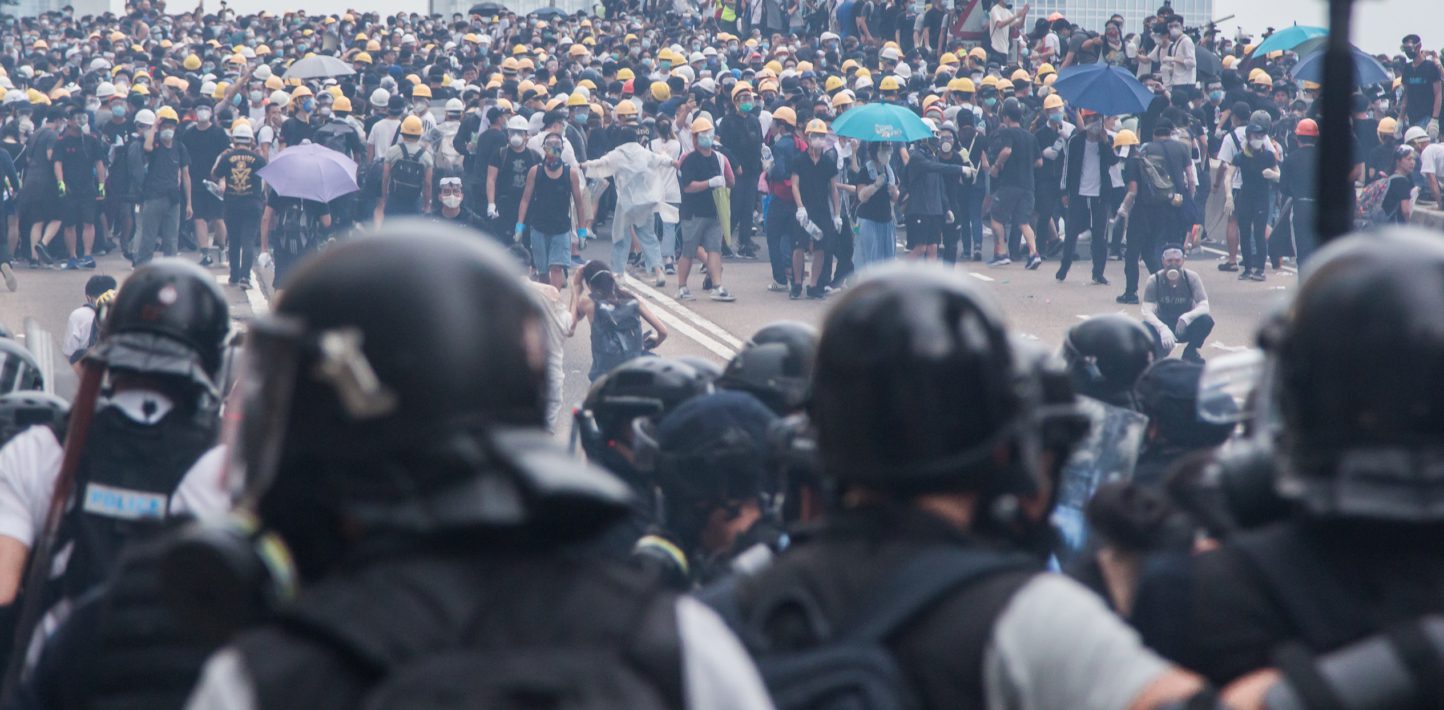An independent investigation into police violence during the Hong Kong protests is essential to preventing unrest from reigniting in the city and rebuilding public trust, Amnesty International said in a new briefing released today.
“Missing truth, missing justice” examines the insurmountable defects of the Hong Kong police’s accountability mechanisms. The briefing sets out the need for establishing an independent commission of inquiry to investigate widespread human rights violations that occurred during the mass protests which erupted last year.
“Each passing day that the Hong Kong government stubbornly resists establishing an independent inquiry adds to the accountability vacuum and erodes public trust further,” said Nicholas Bequelin, Amnesty International’s Regional Director.
“Hong Kong’s existing police complaint system is not fit for purpose and the police force should not be trusted to investigate itself – it is accountable to the public.
“It is essential that the government urgently allows an impartial body to establish the full facts of the protests and make recommendations to address them.”
The call for an independent inquiry into the police’s use of force remains one of the key demands of the Hong Kong public, and has been echoed by the United Nations. Last October, the UN High Commissioner for Human Rights called for an “effective, prompt, independent and impartial investigation”.
Hong Kong’s existing police complaint system is not fit for purpose and the police force should not be trusted to investigate itself.
Nicholas Bequelin
The Hong Kong government has nonetheless continued to resist establishing a separate investigatory mechanism, such as a commission of inquiry. Instead, it claims the existing Independent Police Complaints Council (IPCC) is adequate for dealing with allegations of police violence and other misconduct.
“The mass protests that rocked Hong Kong in the latter half of 2019 are not over. The authorities may be counting on the coronavirus epidemic to extinguish the unrest, but unless they take action the demonstrations – and abuses linked to them – are eventually likely to return.” said Nicholas Bequelin.
“The police’s use of unnecessary and excessive force with effective impunity has left the people of Hong Kong deeply frustrated. An independent inquiry is essential to establishing accountability and delivering justice for the brutality seen on the streets since last summer. Hongkongers deserve the truth.”
In July 2019, the IPCC decided to conduct a fact-finding study into several public order events connected to the protests and invited an expert panel to take part.
The panel stepped down in December 2019, saying the IPCC lacked the investigative powers and capabilities necessary to “begin to meet the standards citizens of Hong Kong would likely require of a police watchdog operating in a society that values freedoms and rights”.
“Public trust towards the government and police has plummeted, and a commission of inquiry is a vital first step towards healing the deep wounds left by the protests. Setting up an independent commission to investigate human rights violations committed since the protests in June 2019 would be an acknowledgement by the government that something has gone wrong and that urgent attention and rectification is needed,” said Nicholas Bequelin.
“A commission of inquiry with adequate resources and investigative powers can tackle the root causes of human rights violations on a larger scale. That means, crucially, its recommendations can prevent the same situation from reoccurring and break the cycle of violence, including that employed by some protesters.”
Throughout the protests, Amnesty International documented an alarming pattern of reckless and indiscriminate tactics by the Hong Kong Police as they adopted a zero-tolerance approach to policing assemblies.
Widespread human rights violations included unnecessary and excessive use of force, such as the dangerous use of rubber bullets and bean bag rounds; beating protesters who were not resisting; misuse of pepper spray and tear gas; and use of water cannons.
Amnesty International collected several accounts of detained protesters being severely beaten in custody and suffering ill-treatment, in some cases amounting to torture.
Strong evidence suggests that the police not only failed to de-escalate tension, but also fuelled it further through the use of unnecessary and excessive force and the persistent impunity for such behaviour.


